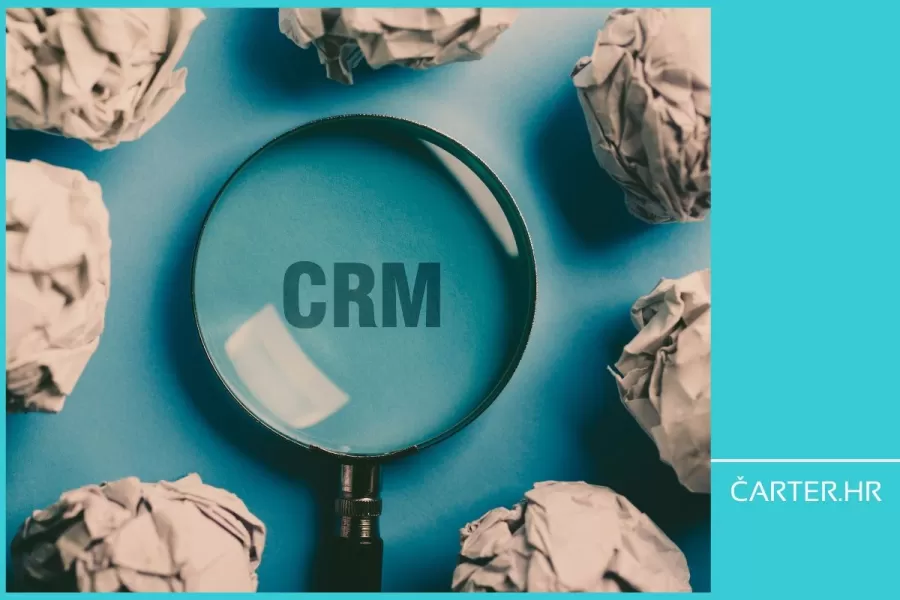
In her new article, Adreja Fazlić reveals to us how the orchestrated process of user experience connects the essential elements of the revenue generation system in one tool.
If you read my column regularly, you are already familiar with the concept of the revenue flywheel. In this instalment, I will focus on one of its 6 key elements - technology, specifically CRM.
In the rest of this article, I will write about why I believe that CRM is a key piece of technology that you must have and use correctly if you want to implement and run your revenue generation system. It is important to emphasise that CRM is not and should not be the only technology element companies use in their business.
When we think back to how companies used to store and manage data, it's hard not to be surprised at how much CRMs have evolved in recent years. They used to be massive databases that tracked crucial information about potential customers. Today, CRMs are indispensable tools that every sales company needs to use to automate, prioritise, and systematise sales efforts across the organisation.
CRM (Customer Relationship Management) is a business strategy and technology tool that enables companies to effectively manage and nurture relationships with customers, potential customers and other types of contacts they interact with.
This system provides a centralised database (first data), enables monitoring interactions with customers, manages sales processes and provides a personalised experience. The use of CRM aims to improve sales results, increase customer satisfaction and achieve long-term and profitable relationships with them.
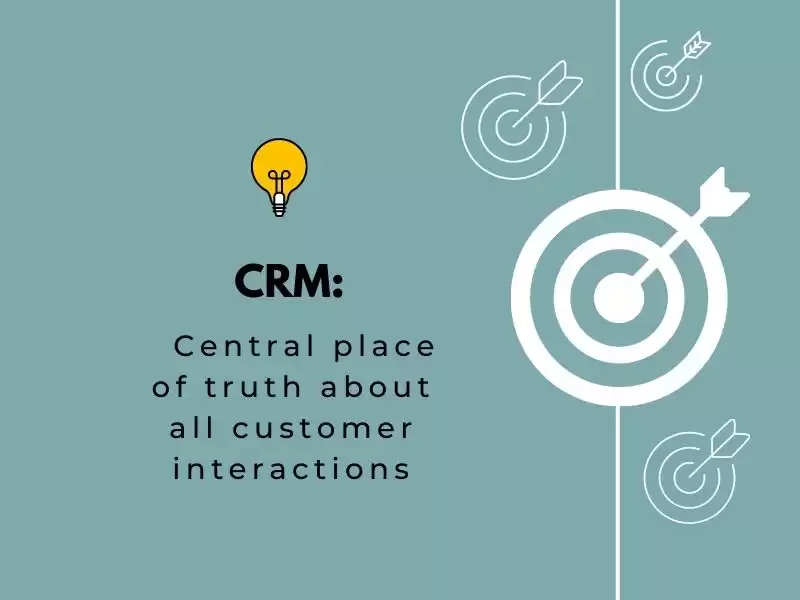
CRM is the central place of truth about all customer interactions
If you're not thinking about CRM that way, you're probably already falling behind the competition. And the situation can only be worse if you already have a CRM and don't use it. Then you are simply throwing money away.
As active participants in the charter industry, I believe you are quite familiar with various Charter booking & management systems (CMBS) that play a key role in managing reservations and creating unique offers for customers in the charter industry. In the same way, CRM allows sales teams to efficiently manage sales processes, track interactions with customers and ensure personalised communication.
CMBS and CRM share similar goals - streamlining processes, improving customer experience, and optimising business results.
Putting your sales process into a CRM is like giving each sales rep a set of instructions and showing them exactly how to follow those instructions. CRMs today provide unparalleled business intelligence to sales teams, helping them create outstanding customer experiences for prospects.
If you are implementing a CRM system, identify what is not working in your current sales process and what you would like to see change. Document and visualise it - this is crucial because this kind of system is simply not wise to implement in your business "off the top of your head".
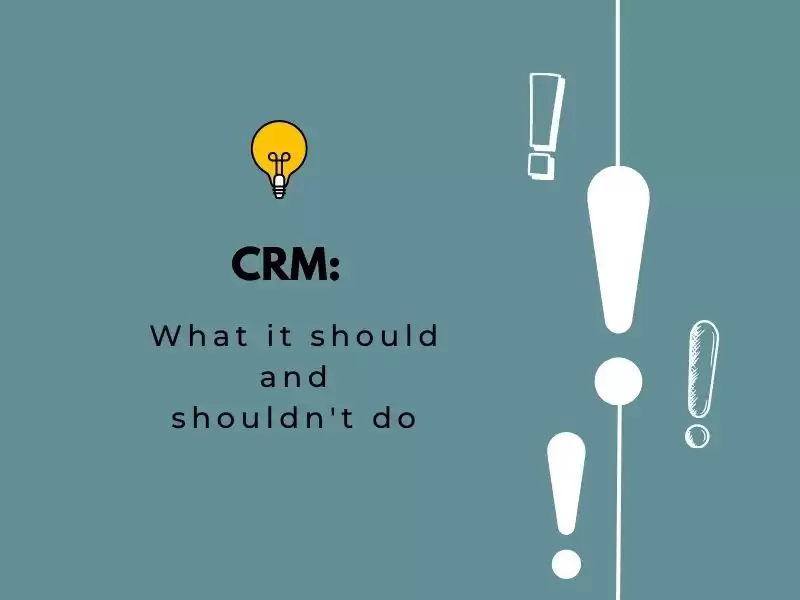
What CRM should and shouldn't do
CRM is a powerful tool, but it is important to understand its purpose and limitations.
A quality CRM enables the automation of sales processes, prioritisation of tasks, monitoring of communication with customers and providing insight into sales results. This means that CRM should be a central source of customer information, enabling sales teams to communicate effectively and create personalised offers. Also, CRM should make it easier to manage tasks, reminders and deadlines, providing a clear overview of priorities and helping teams stay organised.
On the other hand, CRM should not be too complex or burden sales representatives with unnecessary tasks. An effective CRM should be intuitive to use, with a simple interface that facilitates data entry and finding relevant information. Sales representatives should be able to focus on sales activities and building relationships with customers, instead of spending time on unnecessary administrative workload. In addition, CRM should not be static or inflexible. It should adapt to the needs of the company and enable flexible functionalities that match the specific sales processes and goals of the company.
Through proper understanding and application of CRM functionality, companies can achieve maximum benefit from this powerful tool, improve sales processes and achieve greater success in generating revenue.
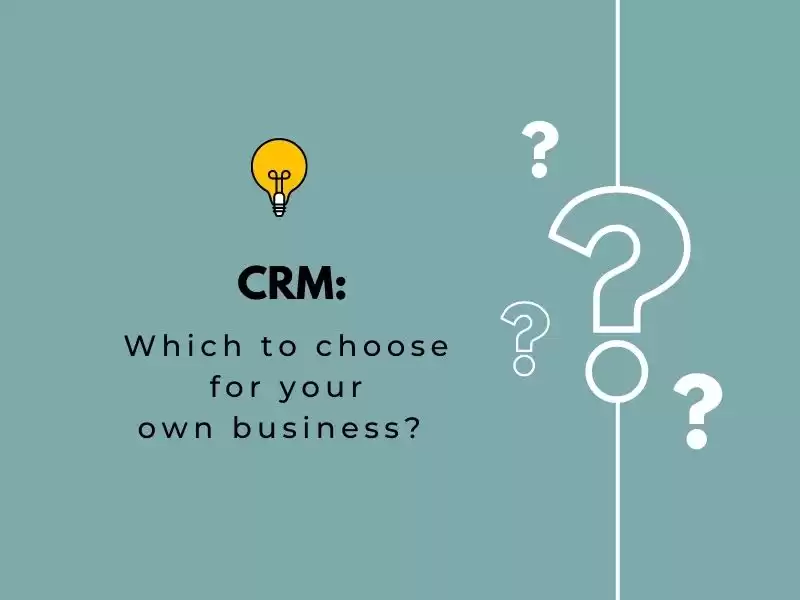
Which CRM to choose for your own business?
For the needs of modern businesses, there is an extensive selection of CRM tools on the market. Dynamics 365, Salesforce, Zoho and HubSpot are just a few of them.
HubSpot is my first choice and first recommendation. I use it every day in my business, and when working with clients, I usually implement two types of projects:
- Revision and optimisation of the existing CRM strategy for clients who already use HubSpot.
- Development and implementation of CRM strategy and onboarding to HubSpot CRM for clients who introduce this type of innovation in their business.
Both types of projects often include an integration strategy with some of the additional technologies companies use in their business, such as various ERP systems, booking platforms, websites, web shops, email marketing tools, task management tools, etc.
Among the many CRM systems, HubSpot stands out as one of the most popular and innovative. This CRM system is easy to use, and free in the basic version. It allows integration with other tools such as marketing automation, content management, back-office, etc.
One of the key features of HubSpot CRM is its ability to track communications with prospects and customers and organise that data in one place. In addition, it enables the automation of sales processes, the creation of personalised offers and the monitoring of sales results. Integration with other HubSpot tools (marketing, sales and service modules) provides additional opportunities for managing marketing activities and generating qualified leads.
The advantages of this CRM are an intuitive interface, the possibility of personalisation, analytical tools and support for managing marketing activities. HubSpot CRM is an ideal choice for companies that want a simple but effective solution for managing sales processes and building quality customer relationships.
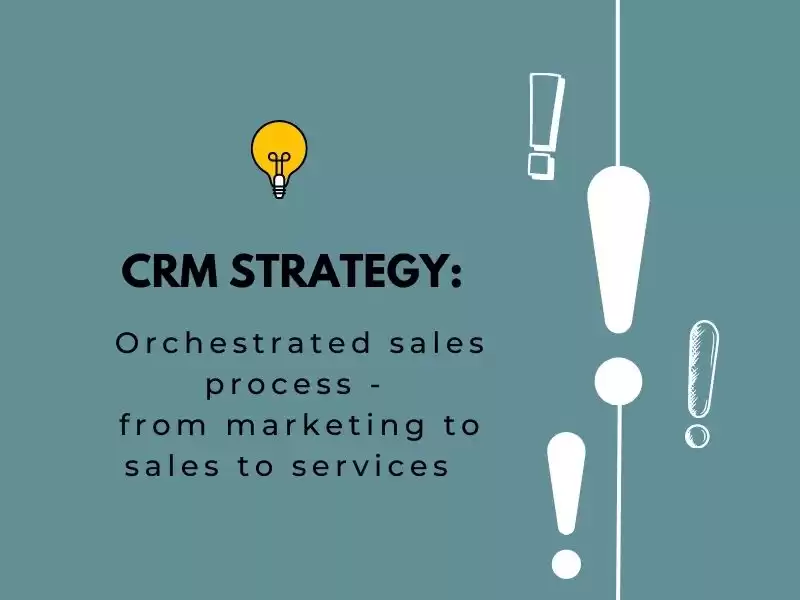
CRM strategy: Orchestrated sales process - from marketing to sales to services
In today's digital world, a CRM strategy is becoming increasingly important to success in generating revenue. A vital component of an effective CRM strategy is an orchestrated customer journey, known as the "Marketing to Sale to Service handoff."
Let's remember - an outstanding user experience is the fundamental fuel of a revenue-generating system.
The orchestrated sales process is a concept that brings together marketing, sales and service activities within a CRM system to create a cohesive experience for customers throughout the customer journey.
Instead of isolated functions and sporadic marketing activities, an orchestrated sales process promotes cross-team collaboration and data integration to achieve consistency, personalisation and efficiency.
An orchestrated sales process plays a crucial role in shaping the customer journey. It affects every phase of that journey - from the first meeting with potential customers, through the purchase process, to after-sales support. Here's how it affects each stage of the customer journey:
Marketing Phase: In this phase, an orchestrated sales process enables the marketing team to track and engage prospects through various communication channels. Data about the interests, preferences and behaviour of potential customers collected through CRM allows for personalising marketing messages and targeting relevant content to attract attention and drive conversion.
Sales Stage: In this stage, an orchestrated sales process enables the sales team to effectively manage the sales funnel. Data from the CRM system helps sales representatives to identify potential customers, monitor the progress of negotiations and adjust sales strategies. The system also makes it easy to automate routine tasks, generate quotes, and track sales opportunities, resulting in faster sales closings and higher revenues.
Service and Support: An orchestrated sales process supports customer service and support teams after closing the sale. The CRM system enables monitoring and managing customer requests, providing personalised service and ensuring high customer satisfaction. The system also allows for monitoring customer feedback and identifying opportunities for improvement.
As part of the CRM strategy, the orchestrated sales process has a significant impact on the company's revenue growth, and the key ways in which this is achieved are:
Consistency and Personalisation: An orchestrated sales process enables consistency in communication and experience with prospects and customers. Personalisation of messages, offers and services is based on data from the CRM system, which results in better engagement and a higher probability of conversion.
Efficiency and automation: An orchestrated sales process enables the automation of routine tasks and activities in the sales and service process. This frees up sales and service teams' time to focus on core activities, increasing productivity and efficiency.
Increase engagement and loyalty: Service teams can provide high-quality customer support and service through an orchestrated sales process. This leads to increased engagement, loyalty and long-term customer relationships, resulting in repeat sales and referrals.
Thus, the orchestrated sales process, as a key component of the CRM strategy, plays a significant role in stimulating revenue growth by coordinating marketing, sales and service activities. Data integration and team collaboration within the CRM system enable consistency, personalisation and efficiency throughout the customer journey. Investing in developing a CRM strategy becomes the fuel for the growth of company revenues in the charter industry (and any other industry), enabling competitive advantage and building long-term relationships with customers.
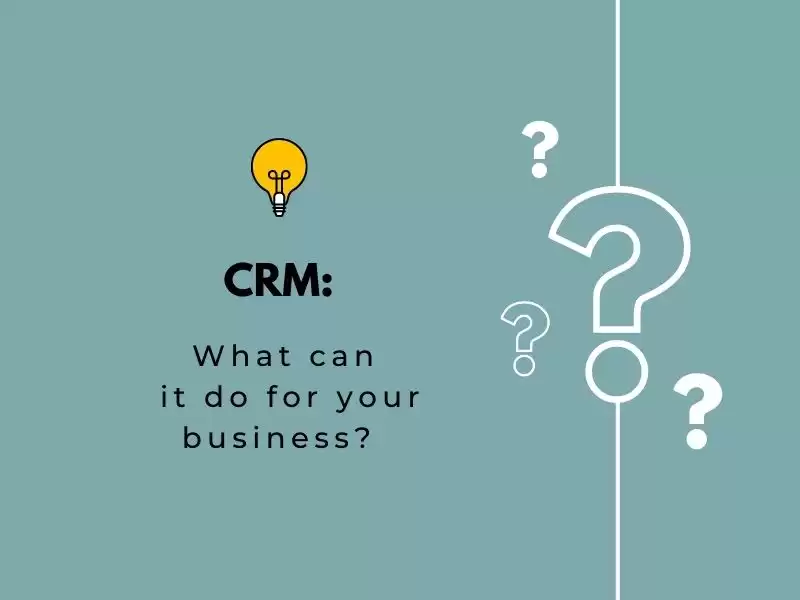
What can CRM do for your business?
If you have reached this part of the article and are still not sure whether you need a CRM or not, here are some concise arguments that will convey its importance and role in a stable revenue generation system:
A better understanding of customers: CRM enables the tracking and storing all interactions with customers, resulting in a deeper and better understanding of their needs, preferences and behaviour. This knowledge allows for personalisation and improvement of the quality of customer communication, which leads to increased conversions and loyalty.
Improved sales efficiency: CRM system facilitates the automation of sales activities, resulting in time savings, reduced administrative tasks, and a greater focus of sales teams on key sales activities. This leads to increased productivity, greater efficiency of the sales process and faster sales closing.
Optimisation of sales processes: CRM enables monitoring of the sales funnel, identification of weak points and opportunities for improvement. Based on the analysis of data from the CRM system, companies can optimise sales processes, improve strategy and make informed decisions about resources and priorities.
Better team management: A CRM system allows managers to track sales teams' performance, identify successful practices, and support employees on their journey to success. Monitoring sales performance, setting goals and providing feedback through the CRM system motivates teams and enables better work management.
Increase in revenue: Implementing a CRM system leads to increased revenue through improved conversion, repeat sales to existing customers, increased loyalty and identification of new sales opportunities.
Consider implementing a CRM system in your own company. It will undoubtedly provide you with a competitive advantage, increase sales efficiency and improve the quality of customer relations.
Categories of trends
- News
- Sale
- Marketing
- SEO
- Web design
- Social media
- Technology
- Regulations
- Management
- Education
- Finances
- User experience
Newsletter
Sign up for the newsletter and receive the latest trends and tips straight to your inbox




